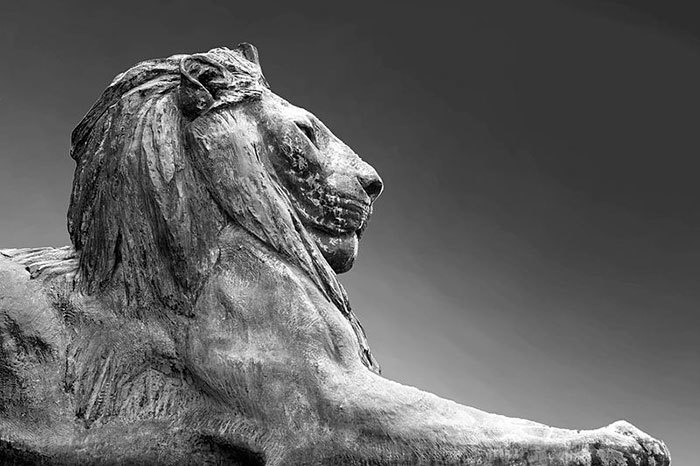Until the lion has its own storyteller
23 March 2015 | Story by Newsroom
Russell Ally, executive director of the Department of Alumni and Development and a UCT alumnus, puts the current #RhodesMustFall debate on campus in context: highlighting how critical this robust debate is in shaping students' understanding of their place in the world, how history is currently being written, and a shared future being built.
The Rhodes statue captures in essence many of the underlying challenges of transformation that UCT faces.
It represents the origins of the university in white privilege and black exclusion. Black people would not have erected a statue of Cecil John Rhodes if they had been part of the university from the beginning.
The history of how the statue came to be positioned where it is today is interesting as a historical account, but the meaning is to be found in that old African proverb that says if the lion and not the hunter wrote the history of their encounter, it would be a different history that would be written.
"Until the lion has its own storyteller, the hunter will always be the hero of the story."
We can choose to focus on the excrement that the student threw at the statue to discredit the frustration that has been felt over years about how the story of UCT has being told – in its buildings, its names, its statues, its institutional culture – or we can begin to embrace a different narrative that integrates the lion into the story in a more humanising way.
On the steps where the Rhodes statue still stands, boards have been put up to encourage students to express their views on the future of the statue. Should it stay? Should it be moved? What should be done with it? Where should it go to?
The space has now become a place of debate and reflection. Earnest, robust discussion is taking place. Students across the racial divide agree and disagree with each other on what its fate should be. They quickly see that the significance of this discussion goes beyond the immediate future of the statue. It is about the future of their country. About how they are going to live together long after this particular incident is a distant, fading memory.
And we can berate them for wasting their time when they should be studying and focusing on the reason why they are at university – to get their degrees.
But this will probably be the most important education that they ever receive. For in a few years after they graduate, they will have forgotten most of what they learnt in the lecture rooms. In fact, they would be encouraged to unlearn most of it in any case because knowledge would have changed and moved on.
But this experience will be indelibly etched on their memories and will influence in profound ways how they take their place in the world.
And unlike in Syria, where bombs are falling and young lives are being blown apart. Where the futures of entire generations are being irrevocably destroyed. Unlike in the Middle East where walls are being erected and suicide bombers are walking into places of learning. Unlike in Nigeria where villages are being raided and young girls robbed on any chance of a dignified life.
Under the shadow of the foreboding presence that the Rhodes statue still continues to cast over our history, no blows have been struck. Nothing has been destroyed. No lives have been lost. No walls erected.
Instead we have a contestation of ideas. We have a marketplace of different solutions offered to problems that have bedevilled our university for many years.
We have conscious, engaged students prepared to grapple with what it means to build a different kind of South Africa. To create a more inclusive UCT sensitive to the hurts and pain of the past, but confident of building a shared future.
We can choose what we decide to focus on: the excrement that is actually symbolic of the mess we are making of the democracy we fought so hard to achieve. Or the promise of what kind of country we want to live in by how we tell our stories to the generations that will come after us.
Opinion piece by Russell Ally, executive director of the Department of Alumni and Development and a UCT alumnus.
 This work is licensed under a Creative Commons Attribution-NoDerivatives 4.0 International License.
This work is licensed under a Creative Commons Attribution-NoDerivatives 4.0 International License.
Please view the republishing articles page for more information.










